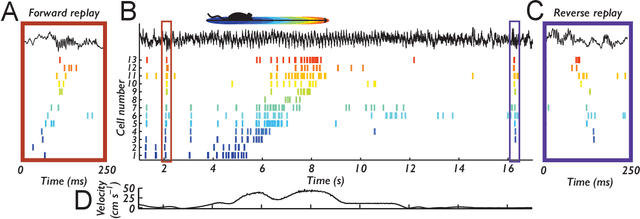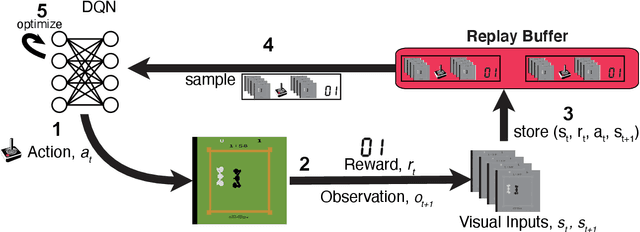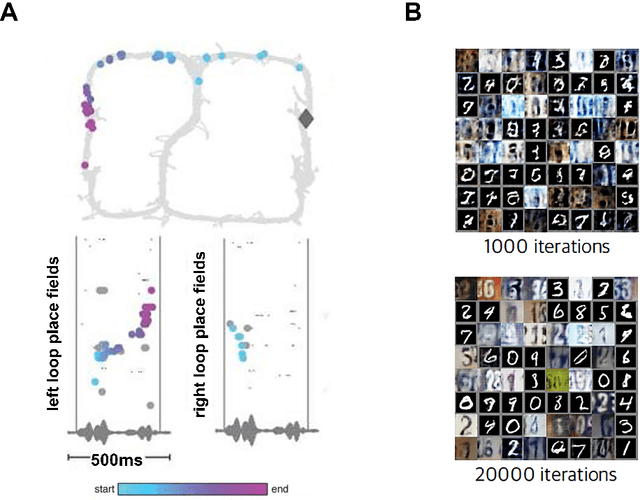Emma L. Roscow
Learning offline: memory replay in biological and artificial reinforcement learning
Sep 21, 2021


Abstract:Learning to act in an environment to maximise rewards is among the brain's key functions. This process has often been conceptualised within the framework of reinforcement learning, which has also gained prominence in machine learning and artificial intelligence (AI) as a way to optimise decision-making. A common aspect of both biological and machine reinforcement learning is the reactivation of previously experienced episodes, referred to as replay. Replay is important for memory consolidation in biological neural networks, and is key to stabilising learning in deep neural networks. Here, we review recent developments concerning the functional roles of replay in the fields of neuroscience and AI. Complementary progress suggests how replay might support learning processes, including generalisation and continual learning, affording opportunities to transfer knowledge across the two fields to advance the understanding of biological and artificial learning and memory.
 Add to Chrome
Add to Chrome Add to Firefox
Add to Firefox Add to Edge
Add to Edge